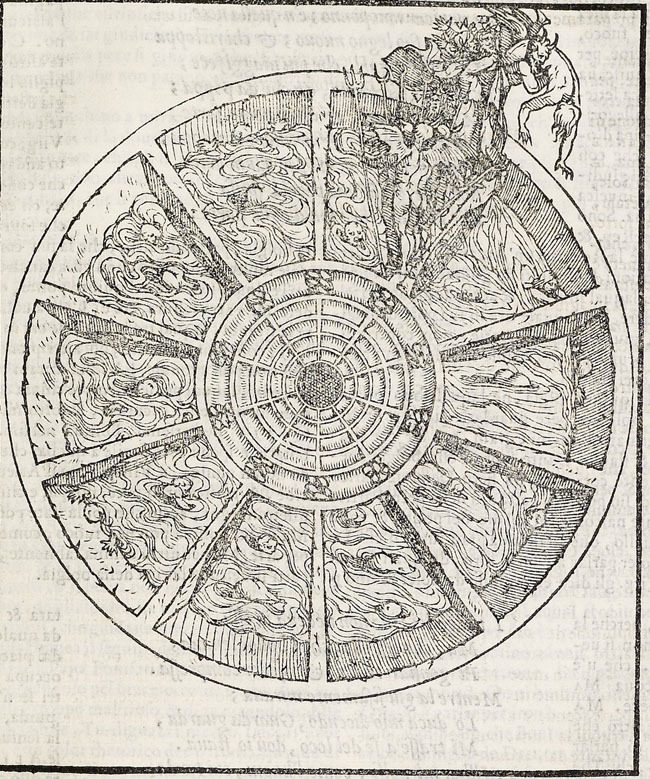
Do you remember the song in Dumbo, about seeing an elephant fly? It starts with the crow saying, "I seen a peanut stand, And I heard a rubber band, I seen a needle that winked it's eye, But i've been done seen about everyting, when I've seen an elephant fly."
Well who'd have known that Disney took a page from Dante with that song. Canto 22 begins where Canto 21 left off, with the weird entourage of Dante, Virgil and their demon guides. Dante begins by saying, "I've horsemen start to march and open the assault and muster ranks and seen them too, at times beat their retreat. And on your land, o Aretines, I've seen rangers and raiding parties galloping the clash of tournaments, the rush of jousts,now done with trumpets, now with bells, and now with drums, and now with the signs from castle walls, with native things and imported ware. But never yet have i seen horsemen or seen infantry or ship that sails by signal of land or star move to so strange a bugle."
Ok, I'll admit it's not nearly as catchy as the Disney version (say what you want about Disney, they know how to make a catchy song!), but the intent is strikingly similar. Even in a place that is removed from reality, at least reality of the living, this fellowship is a few degrees off kilter. It underscores just how unusual Dante's journey is, giving it extra gravity. By breaking these rules and creating these incompatible unions (the most egregious and yet rarely commented on being the impossible union of the the author and his guide), we as readers are meant to understand just how important this quest is, not just for Dante, but for all souls you feel at some point unmoored. Basically, all of humanity. That, I believe is what Dante intended when he proclaimed that his Divine Comedy should considered scripture. It is not his hubris guiding that statement, although a humbler man would think it and not say it. I think it can be read as Dante truly showing grave concern for his comrades in the mortal world. We are all in a sorry state and it will take something impossible (a miracle, even) to shake us loose of our sins and begin to atone towards a more godly existence.
Is it any wonder that Vellutello's wood engraving, shown above, is eerily reminiscent of the wheel of fortune, one of the most poignant symbols of the Middle Ages, and is the choice of images for this particular Canto. We see the travelers and their demon guides climbing out of the wheel. It's a visual emobdiment of escaping the familiar rules that guide us. Instead of zigging, they are zagging. The travelers are breaking the rules, but their journey is given a free pass, because it is so vital that it needs to stand out. Humanity needs to see an elephant fly.